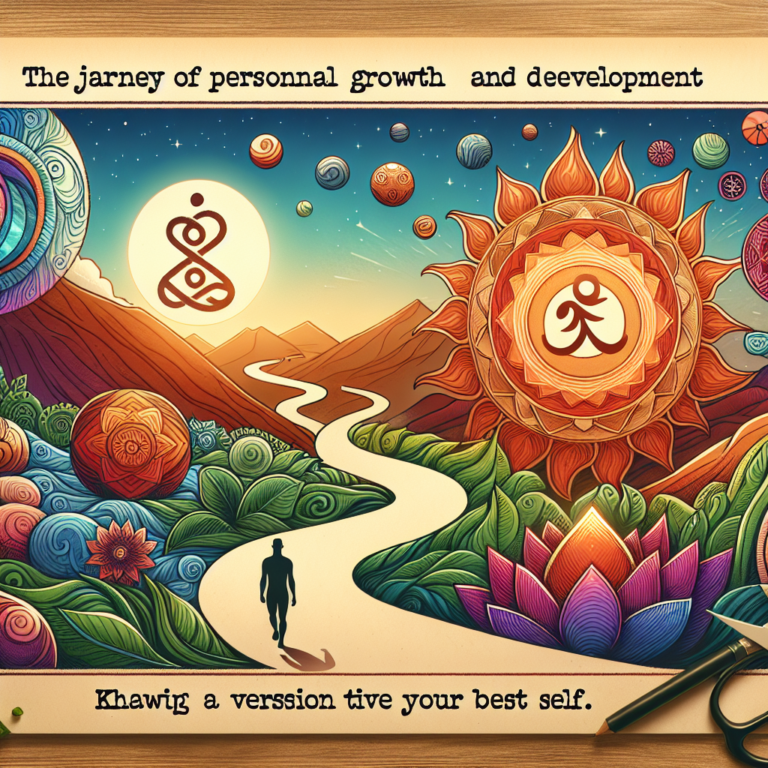Forgiveness is a powerful act that transcends cultures and ages. It is often misunderstood as a mere gesture of absolution, but its implications run much deeper. This article explores how forgiveness can alter your karma, echoing through your life and influencing the experiences you attract. By examining the relationships between forgiveness, karma, and spiritual growth, we hope to provide profound insights into why letting go of grudges can lead to a more fulfilling life.
Understanding Karma
Karma is a concept rooted in Eastern philosophies, especially in Hinduism and Buddhism. It denotes the principle that every action has a corresponding effect on a person’s future. Here’s a more detailed breakdown:
- Cause and Effect: The fundamental concept of karma is that our actions (positive or negative) lead to consequences that eventually return to us.
- Cycle of Rebirth: Many believe that karma not only affects our current lives but also influences future existences, shaping our experiences in the cycle of birth, death, and rebirth.
- Karmic Debt: This term is often used to describe the consequences of harmful actions. Negative actions accumulate karmic debt which must be reconciled through future experiences.
The Role of Intentions
In the context of karma, intentions behind actions are of paramount importance. Positive intentions can lead to positive outcomes, whereas negative intentions can create adverse reactions in our lives.
What is Forgiveness?
Forgiveness is not merely saying “I forgive you.” It is a deep, internal process of releasing resentment or anger towards someone who has hurt you. It involves a conscious decision to let go of negative feelings.
Types of Forgiveness
- Self-Forgiveness: This involves forgiving oneself for past mistakes or actions that may have caused harm to others or oneself.
- Interpersonal Forgiveness: This form involves forgiving another person, which tends to be more complex as it often requires a shift in emotional state towards the offender.
The Interplay Between Forgiveness and Karma
Forgiveness and karma are intricately linked. When we forgive, we fundamentally alter our karmic trajectory.
How Forgiveness Affects Your Karma
- Releasing Negativity: Holding onto grudges creates negative energy and karma. Forgiveness allows you to release these negative feelings, cleansing your emotional and spiritual state.
- Creating Positive Seeding: Acts of forgiveness can seed positive karma. When you forgive, even if the person does not deserve it, you are acting from compassion, enriching your karma.
- Healing Relationships: Forgiveness can improve relationships, leading to more positive interactions. Even if reconciliation is not feasible, the act of forgiveness itself can change the karmic relationship.
The Psychological Benefits of Forgiveness
Forgiveness also has profound effects on mental health. Studies suggest that forgiving can lead to:
- Reduced anxiety and depression
- Lower blood pressure
- Improved relationships
- Enhanced emotional well-being
Steps to Forgiveness
Forgiveness is a journey that requires commitment and reflection. Here are some steps to guide you:
- Recognize the hurt: Acknowledge your feelings of pain or betrayal.
- Consider the context: Try to understand the situation from the perspective of the perpetrator.
- Make a conscious choice to forgive: Understand that forgiveness is a choice that you can make for your well-being.
- Release the desire for revenge: Let go of the need to retaliate for the hurt you’ve experienced.
- Empathize and show compassion: Find compassion for the other person, understanding that they are human and flawed.
- Reflect on your own experiences: Recognize your own imperfections and the times you may have sought forgiveness.
- Reframe the narrative: Change the story you tell yourself about the incident to one that focuses on healing and growth.
Spiritual Perspectives on Forgiveness
Across various spiritual traditions, forgiveness is viewed as essential to spiritual growth. Here’s a look at some notable perspectives:
Hinduism
In Hinduism, forgiveness is associated with the practice of Ahimsa, or non-violence. It is believed that forgiving others is crucial for spiritual development and enlightenment.
Buddhism
In Buddhism, the teachings emphasize compassion and understanding. Forgiving others leads to liberation from suffering and a positive karmic outcome.
Christianity
Christian teachings focus on forgiveness as a core tenet of belief, illustrating that forgiving others mirrors God’s forgiveness of humanity.
Personal Growth Through Forgiveness
Forgiveness is integral to personal growth. By letting go of past trespasses, we free ourselves from the shackles of resentment, enabling us to pursue our spiritual and emotional development.
The Role of Mindfulness
Mindfulness practices can facilitate the process of forgiveness. By being present and aware of our emotions, we can better process feelings of hurt and anger, making it easier to forgive.
Forgiveness Retreats and Workshops
Participating in retreats or workshops focused on forgiveness can provide supportive environments to explore these concepts. They allow individuals a safe space to express their emotions and learn techniques for healing.
Conclusion
Forgiveness is a profound act that not only transforms interpersonal relationships but also alters our karma. By embracing forgiveness, we liberate ourselves from the burdens of resentment and anger, fostering positive energy and inviting better experiences into our lives. It symbolizes a shift towards compassion, healing, and spiritual growth. As we navigate life’s challenges, let us remember that the path of forgiveness is not only a gift we give to others but ultimately to ourselves.
FAQs
1. Is forgiveness the same as reconciliation?
No, forgiveness is a personal decision to let go of resentment while reconciliation involves restoring a relationship. You can forgive someone without reconciling.
2. How can I practice self-forgiveness?
Start by acknowledging your feelings, reflecting on your actions, and recognizing that everyone makes mistakes. Allow yourself to learn and grow from the experience.
3. Is it ever too late to forgive someone?
No, it’s never too late to forgive. The process can happen at any time and can have a positive impact on your emotional well-being, regardless of the timing.
4. Can forgiveness improve my health?
Yes, studies have shown that forgiveness can lead to improved mental health, reduced stress, and lower blood pressure.
5. What if I don’t feel ready to forgive?
That’s completely okay. Forgiveness is a personal journey that takes time. Start with small steps, focusing on understanding your feelings before making any decisions.
6. How does forgiveness affect my future karma?
Forgiveness creates positive energy, which can lead to positive karmic returns in the future. It helps in breaking negative karmic cycles.
Sure! What would you like to know or discuss? You can provide a specific topic, question, or creative prompt, and I’ll be happy to help!, #Forgiveness #Alters #Karma #Deep #Dive, #Forgiveness #Alters #Karma #Deep #Dive, 1736628132, how-forgiveness-alters-your-karma-a-deep-dive





